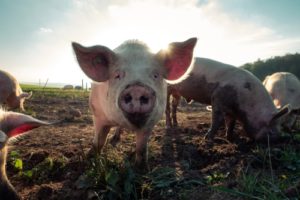 I was recently asked a question about a 2015 UN news story which reported that the World Health Organization had declared that processed meats were linked to colorectal cancer and that red meat was probably carcinogenic in humans. Does that mean that these meats will give you cancer and you should therefore not eat them? As always, it’s not exactly that straightforward.
I was recently asked a question about a 2015 UN news story which reported that the World Health Organization had declared that processed meats were linked to colorectal cancer and that red meat was probably carcinogenic in humans. Does that mean that these meats will give you cancer and you should therefore not eat them? As always, it’s not exactly that straightforward.
Translating Risk To Recommendation Is A Tricky Task
Whenever a report like this comes out people, including people in the media, quite understandably attempt to translate them into straightforward messages. In the health and fitness world that usually means trying to categorize things in terms of ‘good’ and ‘bad’ or ‘do’ and ‘don’t’. Such dicotamies are a useful decision making tool because it simplifies our options—I do good things and avoid bad ones. But in reality health and fitness, like life, is not black and white and neither is risk. Jumping to simplistic recommendations based on a study or a report should always be viewed with caution.
In an interview for Harvard, Kana Wu, who was involved with the report in question, made a point of emphasizing this. She stressed that the IARC/WHO report on red and processed meat was really focused on identifying whether or not a risk exists but not on what changes should happen in response to that risk. Drawing conclusions about what to do with the data was specifically left to other agencies. Why? Because assessing level of risk and deciding how to react to that risk are two different issues.
How Do We Intelligently Talk About The Risk?
Processed meat seems to be associated with about an 18% increased risk of colorectal cancer. Red meat is cited in the report as being probably carcinogenic based on limited evidence (emphasis is theirs) but no percentage statistic is cited. Finally, processed meat is classified as a type 1 carcinogen, the same as cigarettes.
First let’s take a look at the type 1 carinogen statement because it got a lot of attention. After the report came out news articles began declaring processed meat as “the new smoking.” In the interview above Kana Wu points out is that in this case, people are focusing on the category while forgetting that this is about risk. Smoking elevates the risk of lung disease, Wu says, by about 2000% while processed meat elevates the risk by about 17% or 18%, Thus, the two are actually quite different in spite of their shared categorization.
As far as the fact that red meat is declared to be probably carcinogenic based on limited evidence, the qualifiers speak for themselves. There is a risk here, but it is not entirely clear how high that risk is.
In short, given the evidence provided, it is completely reasonable to say that if a person is willing to go without these meats at all then they are reducing their risk of cancer. It is not reasonable, however, to say that people should eliminate these meats because they cause cancer. Blanket statements such as the latter one are too simplistic and do not reflect what is actually contained within the original report.
Meat Consumption Is Very Problematic For The Environment
While we are on the subject, another very solid argument for reducing or even eliminating red and processed meat is that it is a huge strain on the environment. Meat production in general accounts for a full third of the environmental cost of agriculture, which itself is almost ten percent of greenhouse gas emissions.1 In fact, a recent review of the scientific evidence about food and environment by an international group of scientists lead them to conclude that red meat consumption in particular should be limited to fourteen grams per day, or thirty calories—that’s not a lot of red meat.
So Should I Eat Red And Processed Meat Or Not?!
You must decide for yourself. Some people will choose not to eat red or processed meat and that will eliminate one risk factor of cancer for them. Others will decide either for nutrition or pleasure or both to continue to eat these products. Those people may slightly elevate their risk of cancer. In both cases, an argument can be made for the choice and the UN report does not change that. One thing we could all stand to do is reduce the amount of meat in general that we consume—all types of animal products in fact. They are a substantial risk to the environment and cutting down will be a huge benefit to the planet. The reduction in cancer risk can be viewed as the proverbial cherry on top.
